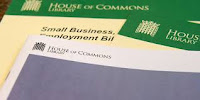House of Common Briefing Paper No. 8079, 1st September 2017 - The European Union (Withdrawal) Bill by Jack Simson Caird, Vaughne Miller and Arabella Lang. The Paper, which extends to a summary and 11 sections, begins by noting the Bill will bring about a complex mixture of constitutional change and legal continuity and states that it is the most significant constitutional bill introduced since the European Communities Act 1972. Of that there can be no doubt.
The Paper comments that the Bill is in response to a decision made by the electorate of the UK on 23 June 2016 to leave the EU. As we know, approximately 52% voted leave and 48% remain. That was the overall UK vote but in Scotland and Northern Ireland a majority voted remain. BBC - Referendum Results.
The use of the word "decision" in the paper is interesting.
Decision?
The referendum was authorised by the European Union (Referendum) Act 2015 which contained nothing to require, as a matter of law, the government to do anything. The referendum result was not legally binding on either Parliament or Ministers.
Following the referendum, the government has treated the referendum as binding politically and is proceeding to implement Brexit. Nevertheless, it is impossible to point to any specific vote by which Parliament itself - the sovereign body under the UK constitution - has decided to withdraw the UK from the EU. This has led some to wonder whether a legally binding decision to leave has actually been made and, if so, how. I looked at those points in some detail on 16th June (here).
Exit Day:
The Paper considers "Exit Day" which, by Clause 1 is the date when the European Communities Act 1972 is repealed. As noted in previous post 10 August, Clause 14(1) of the Bill provides the Government with a power to appoint when exit day will be by regulation. The regulation made under this power will not be subject to any parliamentary procedure. Hence, Ministers get the power to decide when the European Communities Act 1972 will be repealed and this will happen without any legal requirement for them to seek parliament's approval for the chosen date.
Interestingly, as envisaged in the previous post, the Paper notes that the Bill also appears to enable more than one exit day to be appointed. Because Ministers are empowered to decide Brexit Day, the power could be used “to make different provision for different cases or descriptions of case, different circumstances, different purposes or different areas”. This could enable the Government to decide that exit day is one particular day for some parts of the Bill, but another day for others.
Second reading:
Second reading in the House of Commons is scheduled for 7th September. It appears that the Opposition will be seeking amendments to the Bill. For instance, an article in The Express 2nd September suggests that the Opposition will seek amendments so that the bill does not rule out the UK staying in the single market, customs union and ECJ during a transition period.
Transition?
The majority of major changes occur with transition arrangements from the old to the new. and so, from a pragmatic viewpoint, a period of transition seems to be a sensible course of action rather than reaching some "cliff edge" cut off date. Nevertheless, in their anxiety to cease "control", some politicians are bound to want no truck with transition and, in some quarters, politicians are extremely averse to the Court of Justice of the EU (CJEU) having involvement with the UK for a microsecond longer than necessary. The government's Position Paper - Enforcement and Dispute Resolution - clearly seeks to end the "direct jurisdiction" of the CJEU. See the Europa website for an Overview of the present day jurisdiction of the CJEU.
A transition arrangement is envisaged in the European Parliament's Resolution of April 2017 - where para. 28 states - "Believes that transitional arrangements ensuring legal certainty and continuity can only be agreed between the European Union and the United Kingdom if they contain the right balance of rights and obligations for both parties and preserve the integrity of the European Union’s legal order, with the Court of Justice of the European Union responsible for settling any legal challenges; believes, moreover, that any such arrangements must also be strictly limited both in time – not exceeding three years – and in scope, as they can never be a substitute for European Union membership"
Previous posts on the Withdrawal Bill are:





No comments:
Post a Comment